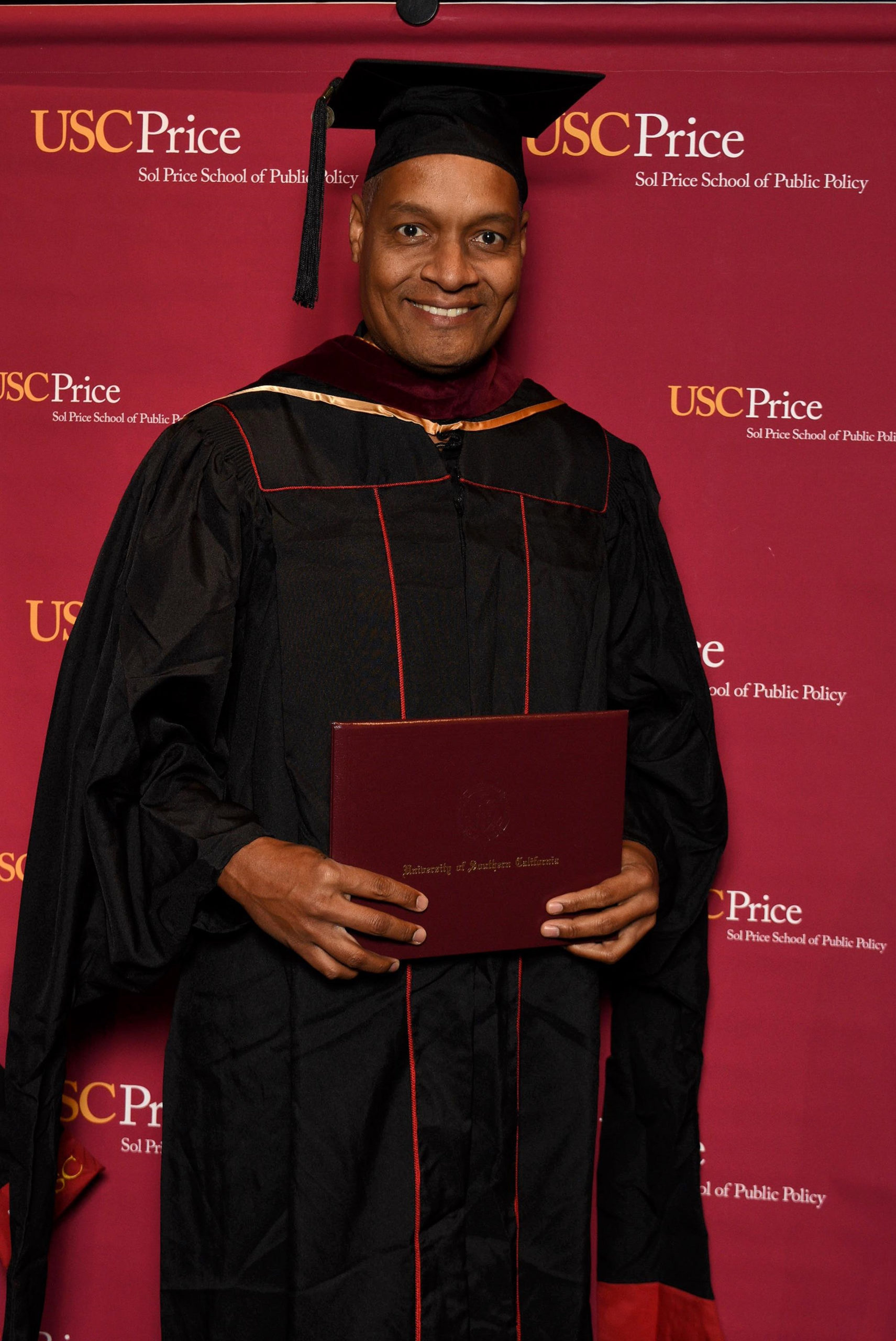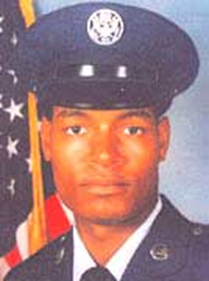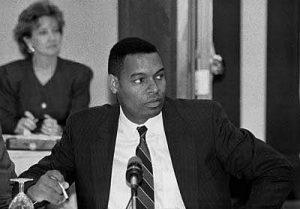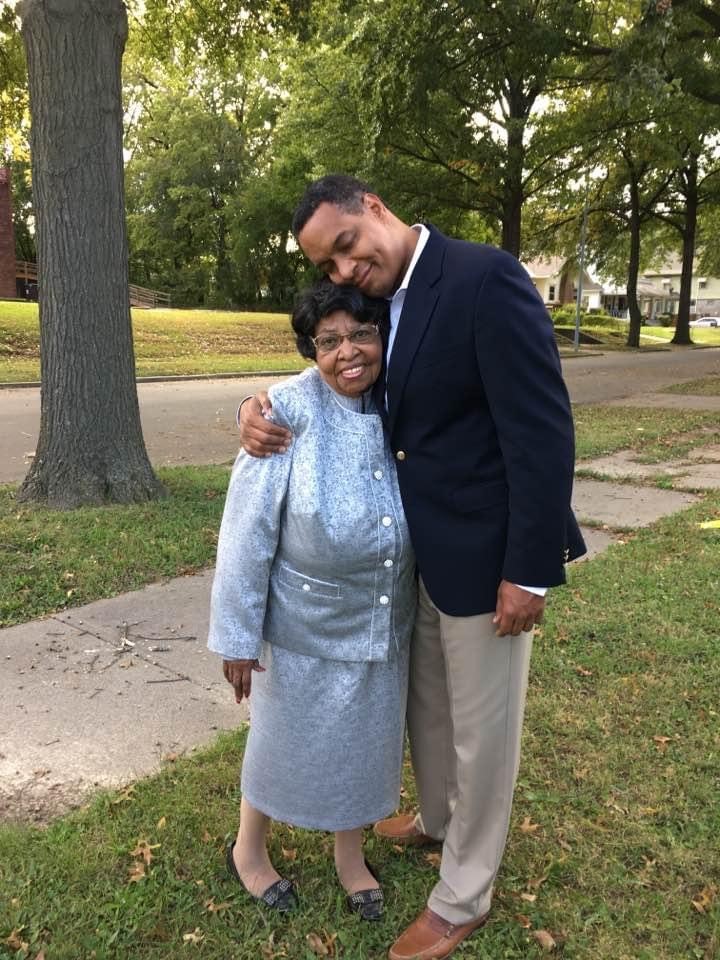A Modern-Day Renaissance Man
Dr. Troy Nash is an Air Force veteran, an economist, political scientist, financial analyst, education advocate, assistant professor, urban planner, aspiring epidemiologist, social entrepreneur, global humanitarian, and affordable housing real estate developer. Today, Dr. Nash uses his formal education and lived experience to find solutions to problems facing underserved and economically deprived communities across the country and around the world. From real estate advisory and consultant services to structuring successful public private partnerships between nonprofit, philanthropic, and community based groups, The Nash Group, a company co-founded with Arielle Nash, works closely with local, county, state, and federal entities to create meaningful community and economic development projects to include providing affordable, and mixed income housing. The firm acquires, develops and manages properties for its own account in a series of partnerships and joint ventures. Dr. Nash’s expertise includes land assemblage, project management and coordination of mixed income affordable housing developments; including the use complex layered financing tools such as the 4% LIHTC, 9% LIHTC, Housing Trust Fund, Tax Abatement, Bond Financing, NMTC, CDBG, HOME, ARP Funds, and securing conventional construction and permanent financing.
The mission of The Nash Group is to inspire, uplift, and elevate underserved and economically deprived communities out of poverty, hopelessness, and despair.
Rough Start To Life

“Where you start out in life has nothing to do with where you end up,” Les Brown
Troy Nash Defied The Odds and believes in the power of positivity and the American Dream. A lifelong resident of America’s heartland, Troy Nash was born in Kansas City, Missouri. Raised by a single-mother, Troy grew up in poverty, on welfare, living in Section 8 housing. The product of the Kansas City Missouri Public School System, he worked a series of odd jobs to help his mother make ends meet. As part of the famous Kansas City, Missouri desegregation experiment, Troy was bused from the inner city and attended Korte Elementary School and Nowlin Middle School in neighboring Independence, Missouri, home of United States President Harry Truman. Labeled “at-risk” early in life, Troy had a challenging childhood and bounced around from public housing projects living in Holy Temple Homes and Friendship Village Apartments. Troy was told he was “not college material” and as a result, had to learn to adapt quickly to his new and ever-changing environments. He quickly discovered drugs, crime, and violence were not part of his vision for the future. As a teenager, the almost high school dropout discovered the United States Air Force which changed his life forever. In the Air Force, Troy learned through discipline, focus, and hard work you can rise above your set of circumstances. The Air Force instilled in him the love of country, duty, and personal responsibility. Against all odds, with no family wealth or powerful connections, but with the guidance of others all along the way and faith in God, Troy would set out on a path that would lead to traveling to over 50 countries around the world, a stint in public office, and becoming the very first African-American real estate executive to become a principal/shareholder in a top tier commercial real estate firm in the history of the State of Missouri; shattering a glass ceiling that stood since Missouri became the 24th state on August 10, 1821. Troy believes personal empowerment through self-determination, unwavering enthusiasm, and positive daily habits are the keys to defying the odds. This belief is one that emerges directly from his personal life experience.
Military Service and Lifelong Learning

“My educational pursuits reflect my desire to study, learn, and address issues affecting underserved communities in the United States and around the world.”
Troy has committed himself to being a lifelong learner and is not afraid to seek the knowledge, skills, and information needed to address issues affecting poor communities. He realized early in life getting an education was the only way out of poverty. With the help of the G.I. Bill, scholarships, and government loans, he was able to get an education. Nash’s first college experience was at Penn Valley Community College. Troy credits Penn Valley with providing him with a strong educational foundation. Nash earned a B.S. in economics from Wesley College in Dover, Delaware while serving on active duty; participating in both Operation Desert Shield and Operation Desert Storm during the war with Iraq. When he returned to Kansas City, Nash attended the University of Missouri – Kansas City College of Arts and Sciences earning a M.A. in political science and a M.A. in economics while working in underprivileged communities on the city’s East Side where he grew up. Nash also earned a J.D. from the University of Missouri Kansas City School of Law and a M.B.A. from the Bloch School of Management while working to encourage hundreds of inner city residents to return to school. In 2015, Nash earned a Doctor of Education degree from Saint Louis University where his focus and research centered on helping children left behind in low performing and non-accredited urban school districts. Nash holds a Master of Urban Planning degree from the University of Southern California. Dr. Nash is completing a Master of Public Health degree from Brown University, one of America’s Ivy League institutions.
Stationed at Dover Air Force Base in Dover, Delaware, Troy was given significant responsibility. At 20 years old he was selected dorm chief of honor flight 048 and was responsible for the direct supervision of fifty airmen. While performing his duties as an airman, Troy attended college full-time. He squeezed in classes at night, during lunch, and on the weekends. He earned the United States Air Force Training Medal, the National Defense Service Medal in support of Operation Desert Shield/Storm, the Air Force Achievement Medal, and the Good Conduct Medal. Troy received an honorable discharge from the United States Air Force.

Dr. Troy Nash served in the United States Air Force.
After serving his country, Troy returned to Kansas City to his family. He had matured and grasped the impact he could have on other people. Troy knew he could help those in the community who were disadvantaged and did not have the same opportunities he discovered in the military. His first priority was to focus on his family. His goal was to empower them. That empowerment would be gained through the only medium that would ensure success and opportunity — education. At the age of 25, Troy converted his moms small house into a classroom, bought used text books from the local thrift store, tutored his family, and helped his three older brothers enroll in college for the first time. Troy’s mother was not left out and with his help, at 55 years old, studied for and received her GED. When she passed away on March 15, 2003, she was a junior in college and posthumously awarded a Bachelor’s degree by the University of Missouri–Kansas City. Troy accepted the degree on behalf of his mom.
Troy became actively involved with community service after returning to Kansas City. He served as a campaign staff member to former U.S. Congressman Alan Wheat in 1994 and worked on former Mayor Emanuel Cleaver’s mayoral reelection campaign in 1995. Troy also worked across the country on numerous political campaigns at the local, state, and federal levels of government. In the fall of 1994, Troy entered law school where he led many organizations and was twice elected class representative. He was Urban Affairs editor of the Urban Lawyer Law Journal. In 1996, he received the National Lawyers Guild Social and Economic Justice Award for his volunteer activities while in law school. Additionally, Troy spent summers clerking for the law firm of Lathrop & Gage, one of Kansas City’s most prestigious large law firms. At 26, Nash was nominated by Governor Mel Carnahan of Missouri and confirmed by the Missouri Senate to the University of Missouri Board of Curators, the first African American to hold the position.

Mike Buckley/Staff Photographer–Student Curator Troy Nash, attends a curator’s meeting.
As student curator, he was the voice for over 55,000 college students throughout the state of Missouri. During his last year of law school, Troy served as an administrative assistant to a member of the Kansas City Missouri City Council. There he learned the role local government could play in changing the lives of people throughout the community. While working for the city council, Nash developed a reputation for working with all people regardless of race, religion, political affiliation, socioeconomic status, or geographical location. After leaving the city council, Troy joined the staff of Mayor Emanuel Cleaver (now a United States Congressman) as his Special Assistant. In this role, he served as Mayor Cleaver’s primary point of contact for economic development and community housing initiatives and addressed neighborhood, community, labor, business, and many other groups throughout the city on behalf of the mayor. Inspired by this experience, Troy learned from Mayor Cleaver one can be involved in politics and at the same time promote civility and decency. After nearly two and a half years in municipal government, Troy was encouraged to run for public office.
Making Progress for Kansas City

Dr. Troy Nash pictured with longtime mentor and civil rights icon Rosemary Lowe.
Mentored by civil rights icon and neighborhood activist Rosemary Lowe, at 29 years old, Troy was elected to the Kansas City, Missouri City Council. He was re-elected in 2003 and served until May 2007, when term limits brought his public service to an end. As an at-large city councilman of the largest city in the state of Missouri with nearly 4,560 employees and a budget over $1.2 billion, Nash was responsible for the direct representation of over 450,000 citizens. Troy served as Vice Chair of the Planning, Zoning, and Economic Development Committee from 1999 to 2003 and the committee’s chairman from 2003 to 2007. As chair of that influential committee, Nash presided over the largest economic development boom in the history of the city. He directly impacted over $10 billion of residential, retail, office, entertainment and industrial development in Kansas City, Missouri. Nash also served as Vice Chairman of the Budget and Audit Committee with jurisdiction over the city’s nearly $1 billion budget. As councilman from the poorest district in the city, Nash became intimately involved with the administration and use of various HUD programs on behalf of the city.
In the summer of 2000, Troy camped out for six days on one of the most crime-ridden corners in America at the time – Kansas City’s 39th and Prospect. The goal was to focus attention on the economic and public health crisis created by decades of poor urban planning, redlining, and discrimination. His efforts resulted in the creation of a citizen driven economic development corridor plan, that attracted much needed private investment to the area — working directly with companies to structure public/private partnerships that would be beneficial to the community and profitable for investors. Troy aggressively courted investors to bring economic development to the area including two new grocery stores. Fighting for underserved and forgotten residents against corrupt management, Troy personally lived for over a month in one of the city’s most crime-ridden housing complexes, well-known for its open-air drug sales and associated violence. As a result, the property was cleaned up, streets were paved, weeds were cut, and at the time the property was placed under new management. While on the city council, Troy learned about the horrible living conditions of the city’s firefighters in many of Kansas City’s fire stations. Troy took action and spent the night in six fire stations throughout the city (one in each council district). He wanted to experience directly what these women and men experienced every day. The resulting public outrage and media exposure led to the successful passage of a $276 million sales tax dedicated exclusively to the renovation, modernization, and improvement of Kansas City’s public safety facilities.
Creating Change in the Private Sector

Dr. Troy Nash became the very first African-American real estate executive to become a principal/shareholder in a top tier commercial real estate firm in the history of the state of Missouri; shattering a glass ceiling that stood since Missouri became the 24th state on August 10, 1821.
As term limits brought his public service to an end, Troy was encouraged to run for higher office, but instead entered the business world as a real estate entrepreneur. In 2007, he joined Zimmer Real Estate Services, L.C., (d/b/a Newmark Zimmer) a prestigious full-service commercial real estate firm in Kansas City. Mentored by legendary real estate developer and business leader Hugh J. Zimmer, in 2014, Dr. Nash made history becoming the very first African-American executive to become a principal/shareholder/partner in a top ten commercial real estate firm in Missouri’s history. Today, Dr. Nash continues to serve as a mentor to others.
Dr. Nash’s passion is providing communities across the country with clean, safe, high quality affordable, attainable, and workforce housing as part of dynamic mix-use developments. Dr. Nash is considered an expert in structuring successful public-private partnerships between private developers and public sector entities. Nash successfully completed the Urban Land Institute Real Estate School and holds both the Housing Development Finance Certification (HDFP) and the Economic Development Finance Certification (EDFP) issued by the National Development Council (NDC). He also completed all the coursework toward the Certified Commercial Investment Manager (CCIM) designation. In 2015, Dr. Nash achieved another professional milestone by being inducted into the exclusive 2015 Commercial Real Estate Hall of Fame. In 2009, Dr. Nash was nominated by the Democratic Governor of Missouri and confirmed by the Republican led Missouri Senate to the Missouri Housing Development Commission (MHDC).
Dr. Nash served as vice chairman of the commission from 2009 to 2017. The commission administers the United States Department of Housing and Urban Development or HUD’s most successful affordable housing programs. The Housing Finance Agency functions as a bank, providing financing directly to borrowers. The Commission also administers the Federal Low-Income Housing Tax Credit, the Missouri Low-Income Housing Tax Credit and the Affordable Housing Assistance Tax Credit among others. From 2010 to 2016, Nash was appointed by the Governor of the State of Missouri to the Missouri Tax Credit Review Commission. The Bipartisan Missouri Tax Credit Review Commission was created with the mission to review each of the state’s 61 tax credit programs and make recommendations for greater efficacy and enhanced return on investment to the state. In 2014, Nash was nominated by the Mayor of Kansas City and unanimously approved by the city council and appointed to the Tax Increment Financing Commission. As chairman of the Governance, Finance, and Audit committee, the Commission encourages development of blighted, substandard, and economically underutilized areas that would not be developed without public assistance. In 2019, Dr. Nash participated in HUD’s Region IV Emerging Strategies to Affordable Housing Expo. In 2020 and 2022, Dr. Nash was named one of the Most Influential Black Executives In Corporate America by SAVOY Magazine. Dr. Nash is the recipient of many awards and honors, and has been featured in numerous publications, radio, and television programs including the University of Southern California News, the University of Missouri-Kansas City Alumni Award Recipients Class of 2017: Defying the Odds Awardee, be encouraged magazine, Savoy Magazine, Missouri Life Magazine, Diversity MBA Magazine, Smart Companies Radio, NewsOne with Roland Martin, Think Bigger Business Media, Black Enterprise, Ingram’s Magazine, Kansas City Star, Kansas City Business Journal, Missouri State Post, Kansas City Call Paper, Kansas City Globe, and Midwest Real Estate News for his community and public service, professional achievements, and global humanitarian efforts.
Building Community Through Service

Humanitarian work in Africa.
Dr. Nash served on many boards of directors including Arvest Bank, a $20 billion financial institution and the largest privately owned bank in the United States of America, the University of Missouri Kansas City Trustees. He currently serves on the Board of Directors of the Starlight Theater, the Kansas University Advancement Board. Dr. Nash also serves on the Board of Directors of University Health. Nash also served on the Board of Directors of the Congressional Black Caucus Foundation in Washington D.C. where he served as chair of the real estate committee and as a member of the executive committee. In 2019, Dr. Nash was given the honor and privilege of being asked to chair the Salvation Army’s Annual Christmas Campaign in Kansas City. He was only the second African American to chair the event in the Salvation Army’s long history with the city. Each year, The Salvation Army across the world provides 10.8 million nights of safe, climate-controlled shelter, helping to restore the health, dignity, and stability of each person they serve. Additionally, each year the Salvation Army provides over 60 million nutritious, warm meals to people in need.
Dr. Nash is also Assistant Teaching Professor of Entrepreneurship and Management in the Henry W. Bloch School of Management at the University of Missouri-Kansas City. In addition to his faculty appointment he is provided with a title of distinction in the Bloch School of Management, Executive in Residence. This is a working title of honor in the school reserved for those faculty who’s executive, industry, administrative and/or entrepreneurial careers have been stellar, innovative, and exhibited great accomplishment benefiting their colleagues, the business communities, and those who follow in their career footsteps.
